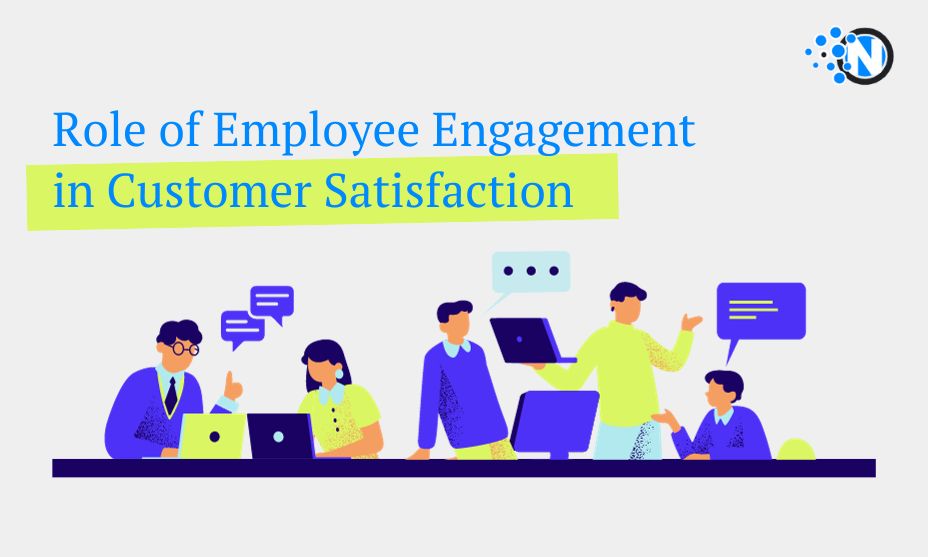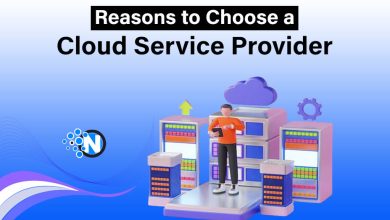The Role of Employee Engagement in Customer Satisfaction

In this business world, customer satisfaction is an essential criterion for the performance of a firm; this applies to every firm active in the market. Satisfied customers become loyal, make repeat purchases and help improve the company’s performance. However good a quality product is there is some extra step that has to be taken which needs motivated and involved employees committed to do some extra things for the customers.
Employee engagement tools play a pivotal role in fostering a motivated and satisfied workforce, which in turn contributes to elevated customer satisfaction. By leveraging these tools, organizations can cultivate a culture of open communication and recognition, ultimately enhancing employee morale and customer service quality.
In this blog post, we will discuss the significance of employee engagement in ensuring customer satisfaction and its impact on business prosperity.
What Does Employee Engagement Mean?
Employee engagement refers to the dedication, commitment, and enthusiasm employees demonstrate towards their work and the organization they belong to. Engaged employees carry out their job responsibilities with investment and exhibit a genuine passion for what they do. They possess a sense of purpose and take pride in their contributions towards achieving the company’s success. Moreover, engaged employees develop a connection with their organization’s mission and values, making them more inclined to exceed expectations when serving customers.
The Relationship Between Employee Engagement and Customer Satisfaction
Research has consistently revealed a correlation between employee engagement levels and customer satisfaction. Engaged employees are more likely to deliver customer service that creates better customer experiences. When employees are fully engaged, they become more motivated to understand and fulfill customers’ needs, resulting in higher customer satisfaction. Here are a few ways in which employee engagement can have an impact on customer satisfaction:
Responsive Assistance
Engaged employees demonstrate attentiveness and empathy towards customers’ needs. They take the time to grasp the requirements of each customer, providing recommendations or solutions accordingly. By relying on scripted responses, engaged employees actively listen to customers, offering timely and relevant assistance. This level of responsive service significantly contributes to increased customer satisfaction.
Empathy and Personalization
Engaged employees tend to be more empathetic and capable of personalizing interactions with customers. They understand that each customer is unique and adapt their approach accordingly, creating a more positive customer experience.
Increased Productivity
Engaged employees are generally more productive. They take pride in their work and are motivated to perform at their best, resulting in quicker response times, improved service quality, and shorter wait times for customers. Increased productivity directly benefits customer satisfaction by minimizing delays and maximizing efficiency.
Efficient Resolution of Issues
When confronted with customer problems or complaints, engaged employees take ownership of the situation. Proactively work towards achieving a resolution. They willingly invest effort into effectively addressing customer concerns. Engaged employees possess a problem-solving mindset that prioritizes finding long-term solutions rather than fixes. This proactive approach and commitment to resolving issues plays a role in enhancing customer satisfaction.

Positive Spread Through Word of Mouth
Engaged employees deliver service and create positive interactions that inspire customers to share their experiences with others. Satisfied customers are more inclined to recommend a company to their friends, family, and colleagues. Positive word of mouth plays a significant role in attracting customers and establishing a solid reputation. Engaged employees act as brand advocates and contribute significantly to the growth and success of the organization.
Reduced Employee Turnover
High levels of employee engagement are associated with lower turnover rates. When employees are satisfied with their jobs and feel valued by their organization, they are more likely to stay, resulting in a more experienced and skilled workforce that can better serve customers.
Customer Loyalty
Satisfied customers are more likely to become loyal customers. Engaged employees play a pivotal role in building customer loyalty by consistently providing excellent service and fostering a positive brand perception. Loyal customers not only return but also recommend the company to others.
Strategies for Enhancing Employee Engagement
To maximize the impact of employee engagement on customer satisfaction, organizations should implement strategies that cultivate a culture of engagement and motivation among their workforce. Here are some effective approaches for promoting employee engagement:
Effective Communication
Effective communication is vital for fostering employee engagement. Organizations should ensure that employees understand their roles, responsibilities, and expectations. Regularly communicating the company’s mission, values, and goals helps keep employees aligned with the organization’s vision. Transparent communication builds trust and empowers employees to take ownership of their work.
Recognition and Rewards
Recognizing and rewarding employees for their work and accomplishments drives employee engagement. Celebrating employee successes publicly while providing feedback and constructive criticism can be highly impactful. A reward and recognition program acknowledging exceptional performance makes employees feel valued and appreciated, motivating them to continue delivering excellent customer service.
Continuous Learning and Growth
Investing in employee training and development programs shows a commitment to helping employees grow. This expands their knowledge by providing opportunities for learning and improving skills, and it also boosts their confidence and involvement. The training programs should focus on enhancing customer service skills and cultivating a customer-centric mindset among employees.
Employee Well-being and Work-life Balance
Creating a work environment that prioritizes employee well-being and work-life balance fosters engagement. Organizations should encourage a balance between work and personal life by offering work arrangements promoting mental and physical well-being and nurturing a supportive workplace culture that values inclusivity.
Conclusion
Employee engagement plays a vital role in ensuring customer satisfaction. Engaged employees are more likely to deliver quality service, personalized solutions, and effective problem-solving. Their dedication creates such an experience for customers that it leads to levels of satisfaction. Organizations that prioritize employee engagement through strategies can benefit from increased customer loyalty, word of mouth, and overall business success.




